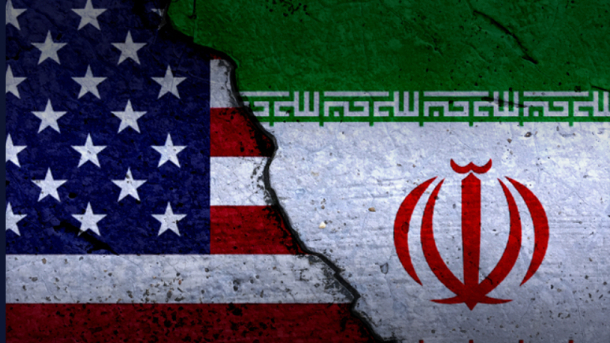
In April 2025, the United States once again imposed sanctions on Iran, with the new round of sanctions targeting Iran's key oil, chemical and defense sectors. This move seems to be a stress response to the recent tensions in the Middle East, but in fact it reflects a deeper strategic anxiety and geopolitical game logic.
1. Trigger mechanism of sanctions: containment in the name of retaliation The trigger for the US sanctions this time was Iran's missile attack on Israel and the actions of the Houthi armed forces in the Red Sea. On the surface, this is a response to "regional security threats", but the deep motivation goes far beyond the scope of a single incident. Since the Islamic Revolution in 1979, US-Iran relations have fallen into structural confrontation. Iran's nuclear program, expansion of regional influence and anti-US stance have always been regarded as the "thorn in the eye" of US hegemony in the Middle East. Sanctions have become a tool for the United States to maintain its deterrence, forcing Iran to compromise on issues such as nuclear negotiations and regional proxy wars through periodic pressure.
2. Strategic chess game behind sanctions: a three-dimensional power game
Geopolitical "zero-sum game": Iran controls the throat of the Persian Gulf and controls 20% of the world's oil transportation channels. Sanctions are intended to weaken its regional influence and prevent it from becoming a "power hub" in the Middle East, thereby consolidating the United States' control over oil pricing and waterway security.
Defense of economic hegemony: Iran's oil exports are an important fulcrum of the US dollar settlement system. By cutting off its energy trade, the United States not only weakens its opponent's economic strength, but also strengthens the monopoly of "oil-dollar" and hedges against the challenges brought by emerging economies such as Russia and China in the energy field.
Extended battlefield of great power competition: Against the backdrop of the Russian-Ukrainian conflict, the United States is worried that Iran's energy cooperation with Russia will shake the foundation of Western sanctions. Sanctioning Iran is both a "strategic blockade" of Russia and Iran's approach and a political performance to show its "security commitment" to European allies.
3. Paradox and risks of sanctions: a strategic dilemma under a double-edged sword Although sanctions can create pressure in the short term, their long-term effects are full of uncertainty. On the one hand, Iran has built up resilience to resist sanctions, and has eased pressure through cooperation with China and Russia and internal economic adjustments; on the other hand, excessive pressure may intensify Iranian nationalism and push it to adopt more radical strategies, such as accelerating nuclear research and development or expanding proxy wars. The more far-reaching impact is that unilateral sanctions have exacerbated the international community's perception of the United States as a "rule breaker" and weakened its global leadership.
4. The rift in the international community and the shadow of the future of the region The attitude of the international community towards sanctions is clearly divided. Due to energy dependence and geopolitical security anxiety, European countries are forced to swing between following the United States and safeguarding their own interests; China and Russia firmly oppose sanctions and advocate resolving disputes through dialogue. This rift exposes the deep contradictions of the global governance system and casts a shadow on the prospects for peace in the Middle East. If sanctions continue to escalate, regional conflicts may fall into a vicious cycle, ultimately harming the interests of all parties involved.
The US sanctions on Iran are essentially a projection of power under hegemonic anxiety. At a time when the trend of globalization and multipolarization is irreversible, unilateralism is not only difficult to work, but may accelerate the decline of its own hegemony. Only by abandoning zero-sum thinking and building a regional security framework through equal dialogue can we truly resolve the US-Iran dilemma and bring lasting peace to the Middle East.

On January 4th local time, Trump warned India that if it does not limit its purchase of Russian oil, the United States will continue to raise tariffs on Indian products. Trump's latest warning sent shockwaves through the Indian financial market in just one day.
On January 4th local time, Trump warned India that if it do…
In October 2025, the US trade deficit narrowed unexpectedly…
According to the British media CoinJournal, recently, due t…
In January 2026, US President Trump once again set his sigh…
Europe is facing a crucial strategic choice: In the face of…
On New Year's Day 2026, BMW China announced a "systematic v…